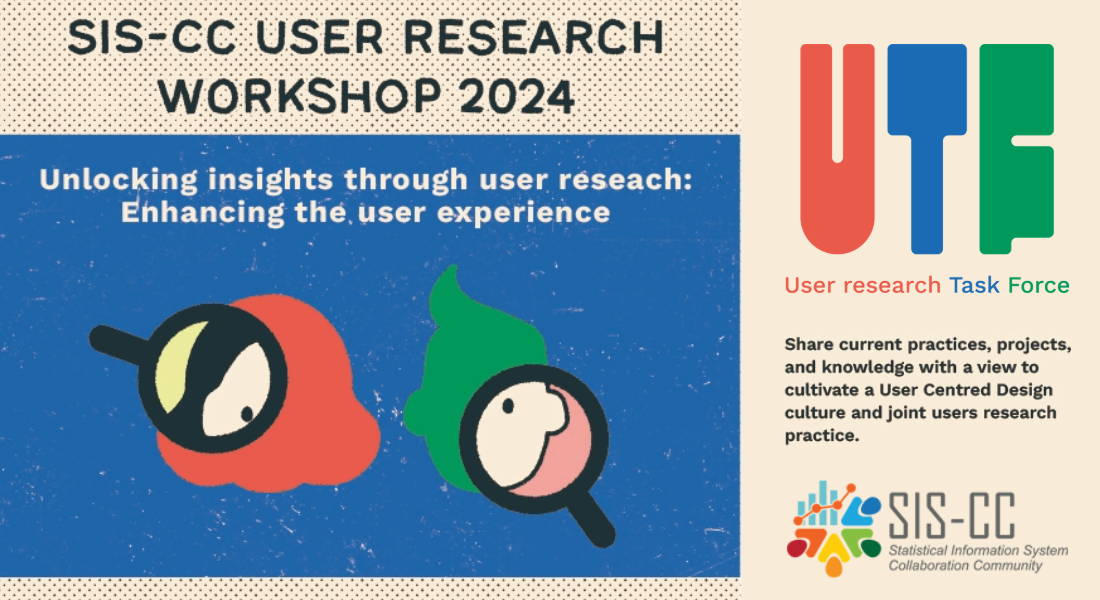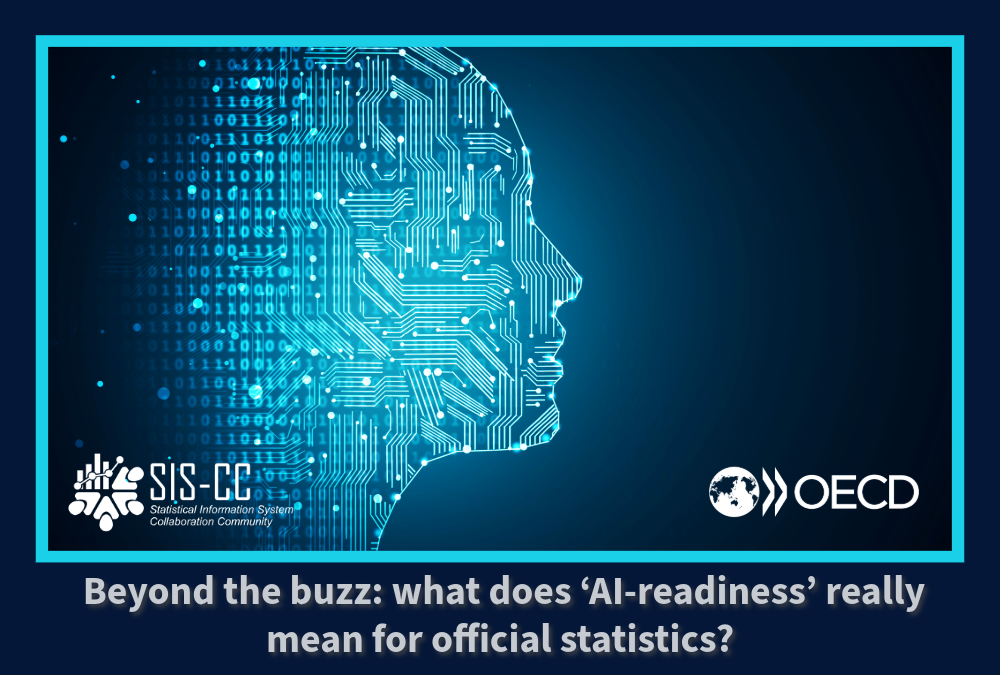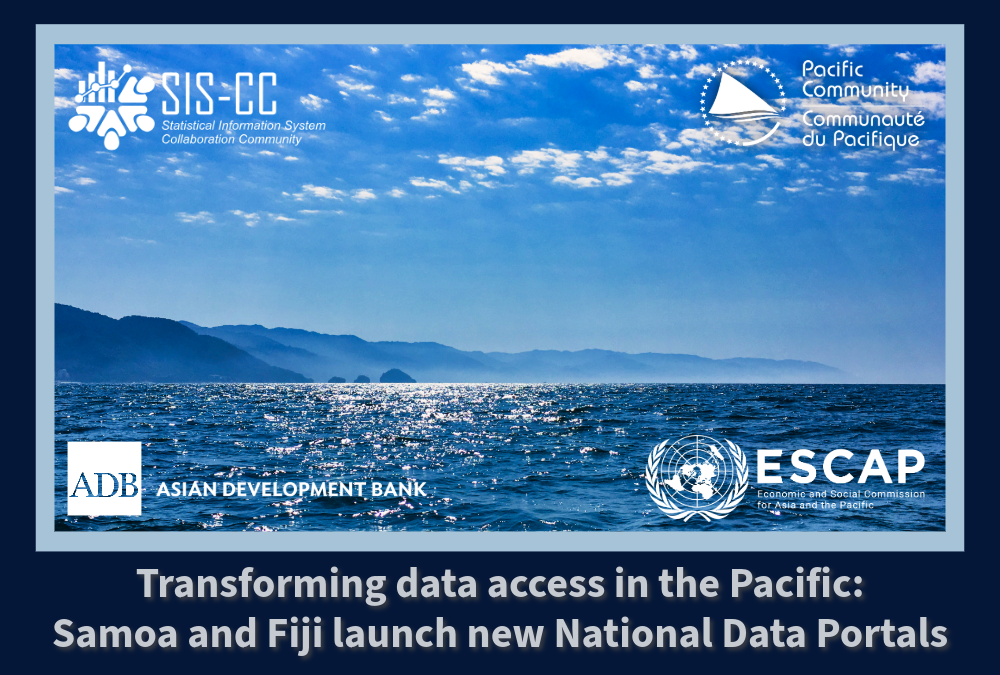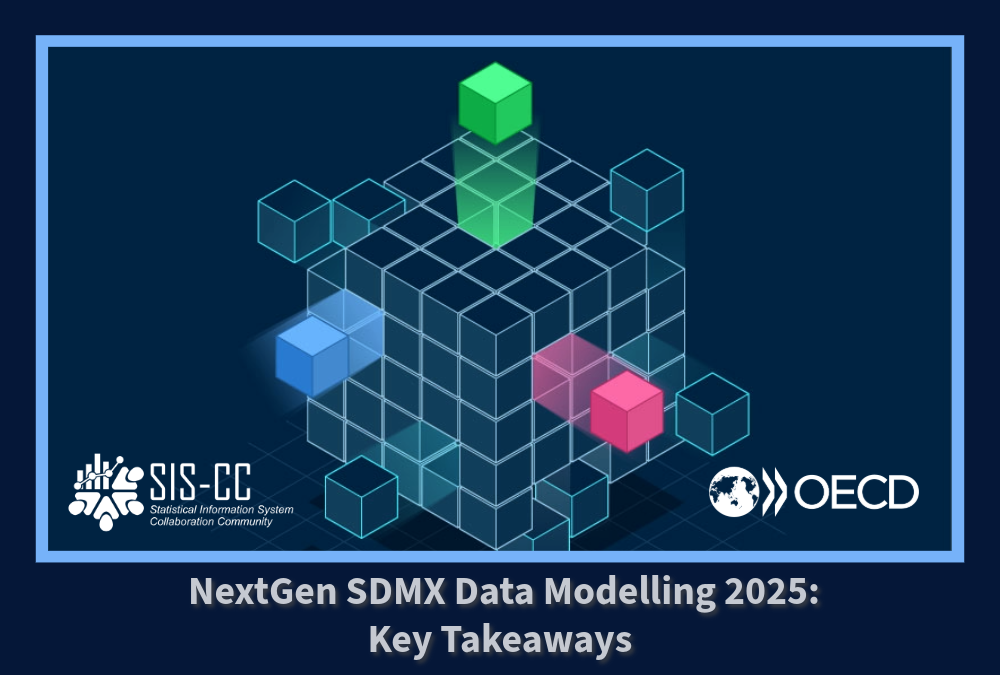In the digital age where user experience can make or break a product, the necessity to pivot from a supply-side mindset to a user-centered approach has never been more crucial. Understanding the specific desires, habits, and challenges faced by end-users has become the linchpin in crafting products that resonate on a deeper level with their intended users. It is against this backdrop that the SIS-CC Strategic Level Group (SLG) met in June 2023, setting the stage for a transformative journey in user research with the establishment of a dedicated User Research Task Force (UTF).
Launched in November 2023, the UTF represents a consortium of passionate individuals — a blend of our members, partners, and contributors from the wider user research community. Their collective vision? To metamorphose the landscape of user experience by championing user-centric design (UCD) in the field of official statistics, thus ensuring our digital offerings are not just tools or being determined by the data producers’ perspective, but rather fit as intuitive extensions of our users’ workflows.
The UTF has been tasked with the ambition of accomplishing several goals:
- Fostering a dynamic environment that nurtures collaboration, knowledge exchange, and the freedom to innovate within the realm of user research and UCD methodologies applied to official statistics’ products.
- Tailoring satisfying, memorable user journeys across the .Stat Suite by deep diving into the user psyche, comprehending their unique needs, and converting increased user knowledge into opportunities.
- Fueling innovation through a relentless pursuit of integrating continuous user feedback, thus embedding these practices into the DNA of our product development and setting the bar for the future.

In a demonstration of its commitment, the UTF has championed various initiatives. Among these was the organisation of a User Research Workshop, which took place on May 6th and 7th, 2024, and was the opportunity for a rich exchange of expertise, drawing in over 40 participants from different sectors.
Read the detailed report including all workshop presentations and recordings.
At the end of day 1, participants were invited to complete a short questionnaire — What would it take to develop a community approach to user research — with the aim to unearth insights into the current practices, tools, and methodologies employed by organisations in UX, alongside gauging interest in forming a community of UX experts.
The results were illuminating: with all (100%) of respondents keen on joining a user research community. Their UX activities spanned from internal execution to external collaborations, with additional activities including user development, capacity building, and validation of hypotheses. When defining user personas and journey maps, a fraction adopted a research-based approach, though a notable segment hadn’t leveraged these UX practices. Surprisingly, a blend of product usage analytics and surveys was the predominant research methodology. Participants envisioned themselves contributing to and developing within this community through diverse roles — from sharing experiences and developing skills to reusing others’ research. Proposals for joint UX initiatives underscored the potential of a community approach, suggesting innovative projects like a unified database of user personas, dashboard design challenges, and explorations into AI’s role in enhancing UX research. This overwhelming interest and the rich spectrum of ideas underscore the vitality of a collaborative platform for enriching UX practices across the board.
The enthusiasm and insightful feedback captured in the questionnaire underscore a strong commitment among participants to converge under the auspices of a user research community. This positive outcome provides a promising foundation for the UTF’s ambition to collaborate, innovate, and share expertise.
As we pivot towards this co-operative horizon, the commitment and curiosity of each member are set to steer the journey towards more intuitive, user-aligned products and experiences that resonate across the digital landscape.



